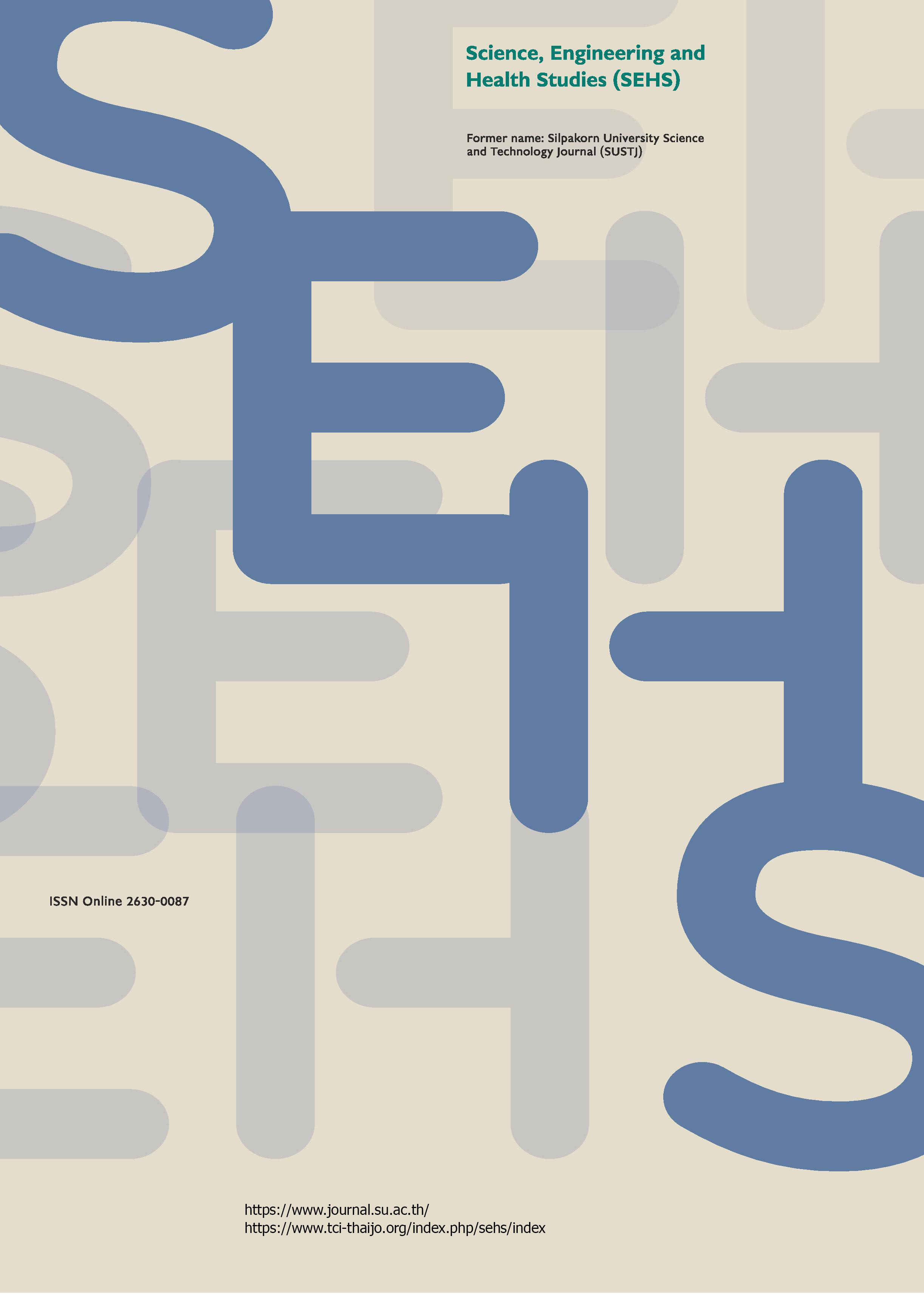Optimal berth reservation problem under flexible time slot system
Main Article Content
Abstract
Traditional method of setting a reservation frame for each truck, which is used in many distribution centers, does not consider the delay in the arrival time of the truck, and the waiting time tends to increase. To solve this problem, a method for setting the reservation time frame for multiple trucks was proposed. The behavior in each reservation frame was modeled as an M/M/k type queue, and the expected stay time in the system was derived. The optimal truck berth reservation frame was determined for each supplier, which was formulated as 0-1 integer programming with an objective function of minimizing the sum of expected stay times. In the numerical experiments, a data set based on a survey conducted by the authors was created and its effectiveness was verified in the real world. The effects of the transportation unit and the number of berths were also considered.
Downloads
Article Details

This work is licensed under a Creative Commons Attribution-NonCommercial-NoDerivatives 4.0 International License.
References
Behnamian, J., Fatemi Ghomi, S. M. T., Jolai, F., and Heidary, P. (2018). Location-allocation and scheduling of inbound and outbound trucks in multiple cross-dockings considering breakdown trucks. Journal of Optimization in Industrial Engineering, 11(1), 51-65.
Bierwirth, C., and Meisel, F. (2015). A follow-up survey of berth allocation and quay crane scheduling problems in container terminals. European Journal of Operational Research, 244(3), 675-689.
Castellucci, P. B., Costa, A. M., and Toledo, F. (2021). Network scheduling problem with cross-docking and loading constraints. Computers and Operations Research, 132, 105271.
Dong, C., and Franklin, R. (2021). From the digital Internet to the physical Internet: A conceptual framework with a stylized network model. Journal of Business Logistics, 42(1), 108-119.
Dulebenets, M. A. (2018). A comprehensive evaluation of weak and strong mutation mechanisms in evolutionary algorithms for truck scheduling at cross-docking terminals. IEEE Access, 6, 65635-65650.
Dulebenets, M. A. (2019). A Delayed Start Parallel Evolutionary Algorithm for just-in-time truck scheduling at a cross-docking facility. International Journal of Production Economics, 212, 236-258.
Dulebenets, M. A. (2021). An Adaptive Polyploid Memetic Algorithm for scheduling trucks at a cross-docking terminal. Information Sciences, 565, 390-421.
Heidari, F., Zegordi, S. H., and Tavakkoli-Moghaddam, R. (2018). Modeling truck scheduling problem at a cross-dock facility through a bi-objective bi-level optimization approach. Journal of Intelligent Manufacturing, 29(5), 1155-1170.
Imai, A., Nagaiwa, K. I., and Tat, C. W. (1997). Efficient planning of berth allocation for container terminals in Asia. Journal of Advanced Transportation, 31(1), 75-94.
Imai, A., Nishimura, E., and Papadimitriou, S. (2001). The dynamic berth allocation problem for a container port. Transportation Research Part B: Methodological, 35(4), 401-417.
Japan Industrial Vehicle Association. (2018). Construction of an overall optimal supply chain system that makes effective use of IoT Survey project report. Ministry of Economy Trade and Industry of Japan.
Konur, D., and Golias, M. M. (2013). Analysis of different approaches to cross-dock truck scheduling with truck arrival time uncertainty. Computers and Industrial Engineering, 65(4), 663-672.
Kramer, A., Lalla-Ruiz, E., Iori, M., and Voss, S. (2019). Novel formulations and modeling enhancements for the dynamic berth allocation problem. European Journal of Operational Research, 278(1), 170-185.
Ladier, A. L., and Alpan, G. (2016a). Cross-docking operations: Current research versus industry practice. Omega, 62, 145-162.
Ladier, A. L., and Alpan, G. (2016b). Robust cross-dock scheduling with time windows. Computers and Industrial Engineering, 99, 16-28.
Lalla-Ruiz, E., and Voss, S. (2016). POPMUSIC as a metaheuristic for the berth allocation problem. Annals of Mathematics and Artificial Intelligence, 76(1-2), 173-189.
Luo, C., and Ting, C. (2017). An ant colony optimization for the multi-dock truck scheduling problem with cross-docking. International Journal of Operations Research, 14, 77-87.
Nishi, T., Okura, T., Lalla-Ruiz, E., and Voss, S. (2020). A dynamic programming-based metaheuristic for the dynamic berth allocation problem. Annals of Operations Research, 286(1-2), 391-410.
Schepler, X., Absi, N., Feillet, D., and Sanlaville, E. (2019). The stochastic discrete berth allocation problem. EURO Journal on Transportation and Logistics, 8(4), 363-396.
Theophilus, O., Dulebenets, M. A., Pasha, J., Abioye, O. F., and Kavoosi, M. (2019). Truck scheduling at cross-docking terminals: A follow-up state-of-the-art review. Sustainability, 11(19), 5245.
Theophilus, O., Dulebenets, M. A., Pasha, J., Lau, Y. Y., Fathollahi-Fard, A. M., and Mazaheri, A. (2021). Truck scheduling optimization at a cold-chain cross-docking terminal with product perishability considerations. Computers and Industrial Engineering, 156, 107240.
Wang, Z., Lu, Y., Zhao, L., and Cao, N. (2018). Improved harmony search algorithm for truck scheduling problem in multiple-door cross-docking systems. Discrete Dynamics in Nature and Society, 2018, 1-15.
Wawrzyniak, J., Drozdowski, M., and Sanlaville, É. (2020). Selecting algorithms for large berth allocation problems. European Journal of Operational Research, 283(3), 844-862.
Xi, X., Changchun, L., Yuan, W., and Loo Hay, L. (2020). Two-stage conflict robust optimization models for cross-dock truck scheduling problem under uncertainty. Transportation Research Part E: Logistics and Transportation Review, 144, 102123.
Zhang, Y. H., Gong, Y. J., Chen, W. N., Gu, T. L., Yuan, H. Q., and Zhang, J. (2018). A dual-colony ant algorithm for the receiving and shipping door assignments in cross-docks. IEEE Transactions on Intelligent Transportation Systems, 20(7), 2523-2539.


